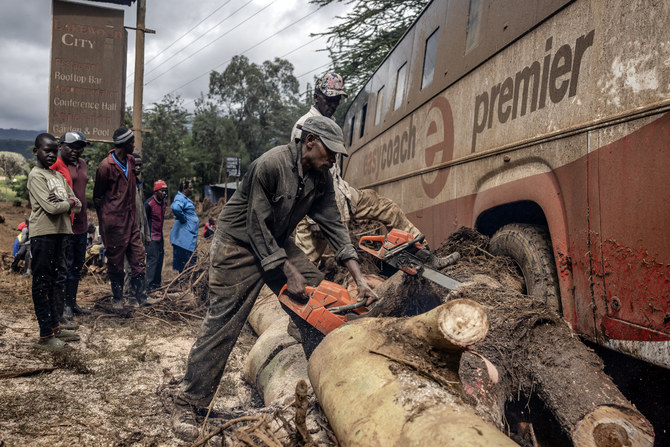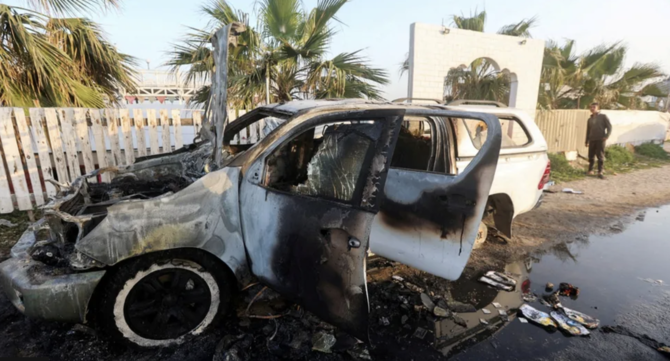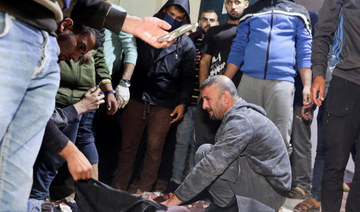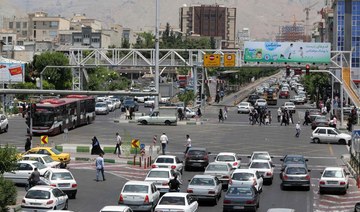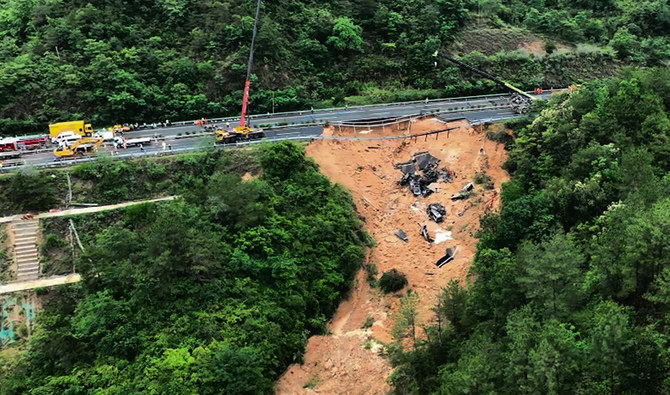LONDON: The UK capital’s bustling Arab heartland of Edgware Road is usually a hive of activity during Ramadan.
Dozens of restaurants work tirelessly serving iftar meals to streams of customers before, later in the evening, people gather in cafes to relax and smoke shisha.
This year, however, things could not be more different.
#Coronavirus pandemic shuts down business on London’s #EdgwareRoad - usually a hub for Arabs and Muslims during #Ramadanhttps://t.co/p2al2gnBon pic.twitter.com/XsU2JpxJsI
— Arab News (@arabnews) May 19, 2020
The UK’s lockdown to tackle COVID-19 means Muslims are unable to join family and friends at sunset to break their fast or go to mosques to pray.
The shift in priorities has dealt a hammer blow to businesses that cater to London’s Muslim community.
Most shops on Edgware Road are closed, but those that remain open are finding new ways to cope during the pandemic, while attempting to continue their usual Ramadan services.
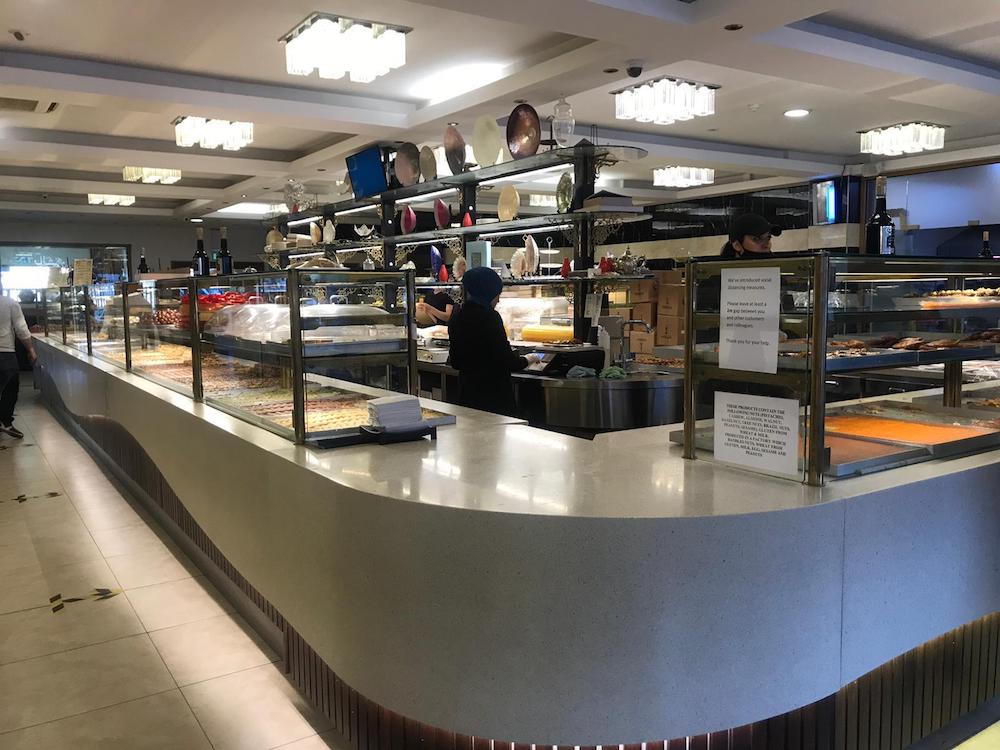
Patchi in north-west London has taken measures to keep shoppers apart as they arrive to buy Ramadan treats. (AN Photo/Sarah Glubb)
“We have a lot of change because of the coronavirus. Our business has come down, so we are only open for takeaways and we get about one customer every hour,” Jamil Souedain, chef at Al-Balad restaurant, told Arab News.
“It’s not like before. We closed for six weeks, and people are scared to come outside and talk to others. We are in a very bad situation,” he added.
The UK lockdown means families cannot visit restaurants and enjoy a meal outside with friends and loved ones.
#WATCH: Arabic bakery in London produces mouth-watering sweets for Muslim customers during #Ramadan despite #coronavirushttps://t.co/p2al2gnBon pic.twitter.com/nToc8lRUr9
— Arab News (@arabnews) May 21, 2020
Patchi, another popular Arab restaurant in northwest London, is now relying mainly on takeaways and home deliveries.
“We have expanded over the past few years,” Ziad Chamai, general manager at the restaurant and bakery, told Arab News.

Many businesses that would normally be serving food to Muslims this Ramadan are having to adapt to the COVID-19 crisis. (AN Photo/Sarah Glubb)
“We opened a new restaurant section and we have a function room, which we hire out for special events such as weddings and birthdays — all of these just vanished overnight.”
The restaurant has added new products, and introduced takeaway boxes of sweets and Lebanese mezzes, grilled meat and shawarma.
“We had home orders, and in Ramadan the whole family comes together, but now they can’t do that,” Chamai said. “So even now, for home delivery, the size is small. But we are still trying to get the food and our products to customers to their homes.
“Yes, we’ve lost on the business side,” he said.

Sweets on sale in Patchi restaurant and bakery in north-west London, where the coronavirus pandemic has put a big dent in food orders. (AN_Photo)
Restaurants have also been hit by the shutdown of offices, with most people in London working from home. Previously companies ordered iftar meals for Muslim employees, but not this year.
“We had a lot of businesses in the neighborhood ordering from us for all their special events, and iftar is usually a busy time — we get a lot of orders. Now all that has gone,” Chamai said.
Patchi’s bakery section is still serving Ramadan sweets to walk-in customers.
However, the shop’s entrances and exit have been altered to ensure a one-way system and customers must keep a set distance apart. Employees wear protective gear, including face masks and gloves, while hand sanitizer and masks are provided for customers.
Workers at another Arab supermarket in Shepherd’s Bush expressed similar sentiments.
“We are trying to serve as much as we can,” Yasser Abu Hajjia, an accountant at Damas Gate, said. “We want to make sure we have everything families need at the moment, especially rice and dates. So we guarantee these products are available for customers.”
#WATCH: The #CoronavirusPandemic has dealt a hammer blow to businesses that cater to London’s Muslim community during #Ramadan #UKlockdown https://t.co/p2al2gnBon pic.twitter.com/Ho2LX6qsPK
— Arab News (@arabnews) May 7, 2020
Other businesses that would normally be thriving in the area during Ramadan also have ground to a halt due to the pandemic.
Abdelatif Samadi, who drives one of the capital’s iconic black taxis, said: “The coronavirus has pretty much decimated the business, finished it off, killed it. It is on hold until after the outbreak.”
Samadi said that even if there was work, the job is “risky” because he is exposed to people who might have the virus.
“So there is no point even thinking of working,” he said.
“At the moment it’s time off. It’s Ramadan, so I’m fasting and not working. I’m coming to buy food from the restaurant and go home,” he added.












